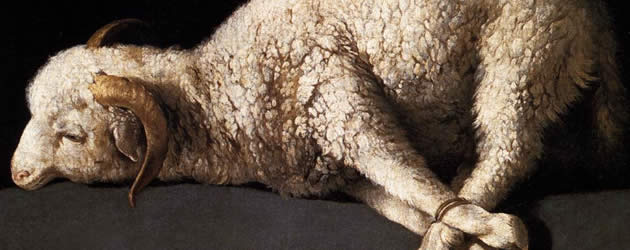Ch. 21 - The Cup of Consummation

We delve into the theme of Jesus as the New Passover lamb. We are told in the Gospels that the Last Supper was specifically the Passover meal, which was celebrated by faithful Israelites once a year. This meal commemorated the Exodus of Israel from Egyptian captivity/slavery. When Jesus celebrates this feast, there is no lamb present at the meal - or is there? Jesus declares the unleavened bread of the meal to be his flesh, and he commands his guests to eat of it. Just as in the Old Passover, Israelites were commanded to eat of the sacrificial lamb, so we are commanded by Jesus to consume the flesh of the New Passover lamb of the New Covenant in the New Exodus!
We look closely at the Gospel accounts of the Passover and discover that Jesus the Passover meal unfinished with his apostles to go out to the Mount of Olives, for he had not yet partaken of the final cup, the 4th cup of wine, which is the cup of consummation. It isn't until the moment before Jesus gives up his spirit from upon the cross that Jesus partakes of wine. John tells us that Jesus said, "I thirst" from upon the Cross and partook of wine given to him from upon a reed; then, Jesus said, "It is finished," indicating that the Passover meal concluded with his death.
In the sixth chapter of his Gospel, Saint John faithfully records Jesus' Bread of Life Discourse where Jesus tells his audience that they must indeed eat his flesh and drink his blood. His audience interprets him literally, and Jesus explains what he meant by reaffirming this literal interpretation no less than six times! Not only that, but in four of these six re-affirmations, Jesus switches from the usual Greek word for "to eat" {fag-oh} to a rare literal Greek word {troh-goh} that cannot be interpreted figuratively. John then only uses this word in one other place in his Gospel: at the Last Supper. John does this in order to tie the Bread of Life discourse to the institution of the Eucharist, to teach us that it is in the celebration of the Eucharist that we fulfill Jesus' command to partake of his very own flesh and blood, which gives supernatural life to members of the Church, the New Israel.


Comments
If you want to learn why Catholics believe in the Eucharist, listen to all of this.
I'm just wondering, you state that there was no lamb at the Last Supper - how do we know there was no lamb? The fact that it isn't specifically mentioned doesn't mean that it was not there. In the synoptic gospels the Institution of the Eucharist happens while they are eating (Matthew 26:26-29, Mark 14:22-25, and Luke 22:14-20) John's gospel is silent about the timing, as is Paul account of the Last Supper in I Corinthians 11:23-25. So it seems it would be doing injustice to the scriptures to conclude there was no lamb served only from it not being mentioned. We know that it was, in fact, a Passover meal, which would have required lamb. The fact that Jesus then also instituted the Eucharist through the bread and wine is not inconsistent with having lamb as a part of the Passover meal. In fact, one might argue that it only serves to reinforce the Eucharist as the perfect fulfillment of the imperfect Passover (if you pursue the typology of the Old being fulfilled in the New).
Hi John! Great comment. There very well may have been - and there is evidence for - there being a Passover lamb at the Last Supper: http://www.thesacredpage.com/2011/04/was-there-passover-lamb-at-last-sup...
What's significant here is what you mention... that the Gospel authors are pointing to Jesus as the fulfillment of the Passover lamb.
"Lamb of God you take away the sins of the world", were John the Baptist first words when he saw Jesus at the jordan River. Jesus is the new lamb that God provided just like when God provided Abraham a lamb in lieu of sacrificing Isaac his son.